Why the personal essay is central to the university application process and 6 ways you can help your student (and 3 ways you can’t)
Be yourself, everyone else is already taken.
Oscar Wilde
The dreaded blank page.
“Speak about yourself. Be different. Be original. And do so in 650 words or less.”
It is enough to make any seasoned writer cower in fear, let alone a 17-year old who is questioning everything. Or an international student who may not have experience with writing essays in English.
The importance of the personal essay within the applications process is moot. Some claim that admissions officers don’t even read them. Others claim the personal essay can make or break your application. Regardless of how it is perceived and used, or whether you are an international applicant or not, the personal essay, or statement, should be central to any university application process. Here’s why:
It is where our thought process is centered.
Writing is thinking on paper. If you think clearly, you can write clearly. The PE is a chance to gather all your thoughts in one place so that you can make sense of them.
Even if it does not matter to the university, it should matter to you because it allows you to clarify your thinking.
Even if you think a university will be blown away by your excellent academic record or your stint in Africa building pipes to bring water to poorer villages, it is important, for you, that you understand what drives you and why you are applying to a certain university to study a certain course. Just because a university is so impressed by your internship in a lab that grows prosthetic limbs for one-eyed chimps out of their own DNA, enough not to bother with your statement, it is important for you to understand what makes you tick and what it is that you hope to achieve. Because even if universities and colleges do not use the PE to get to know you better, you can use it to get to know yourself better.
In some cases it can be the deciding factor in a close competition between two candidates: you and someone else.
Imagine this: you and your next door neighbor have both applied for the same place at the same college. You both have the same grades from the same school. The course only has one more place. How will the college choose between you? Many students applying to the same university today, even those applying as international students, have similar grades and do the same activities. What differentiates you from everybody else is how you think, how you see the world. This is what can often set you apart and make a college choose you over your doppelgänger.
It is an exercise in excellence that is training in itself.
I often explain to the students I work with to expect to write and rewrite several versions of their personal essay. I also warn them that the final version may look nothing like the original but that it will certainly be better. Reworking a personal statement is an opportunity to think deeper, search wider, write better and more clearly. The process from first to final draft is an exercise in how to improve with every try, how to go the distance, how to keep trying until you are happy with your output. It is excellent training for the next four years.
The personal essay is a great opportunity for the applicant to know the “why” behind their choices. Why are they going to university? What do they hope to achieve? What’s their story? What do they care about? And what do they plan to do about it?
Not easy questions.
Perhaps it is for this reason that many students, and some IECs, fear the personal statement. Because if done well, it should talk about you. Not the surface of you, the depth of you. Who are you really? And what do you stand for?
How an IEC/parent/teacher can help students with their essays
There are a few ways that an IEC, or a parent, or a teacher can help an international student through the essay writing process.
Just write!
Encourage your student to write anything, no matter how bad or irrelevant it is. Anything is better than nothing and can often be used as a springboard from which to develop further.
Ask questions
If a student is finding it particularly difficult to get started, I often ask them to tell me about their chosen course and why they have picked it, or what attracts them about a particular university or college. Other questions I ask often are:
What scares you? How do you see the world around you? When was the moment you realized this is what you wanted to do? What makes you angry? What warms your heart? If you had the power to fix one thing in the world what would you choose? These are usually good conversation starters and take us down roads and thoughts we can exploit together.
Hold that thought
Allow the student to speak freely. If you hear something interesting ask them to write it down briefly and continue talking. Once finished you can go over the notes together and discuss.
Prove it! Show, don’t tell
As with any writing assignment, a student should be encouraged to show and not to tell. For example, if a student writes that they enjoy visiting museums, ask them to prove it. Ask them about a specific trip or a specific work of art that has touched them. If they mention that they enjoy reading the papers, ask them about a specific article that drove them to act. By going over their “proof” the student often distinguishes elements that they can use in their essay and that sets them apart.
Extra-curriculars matter, but only when they have taught the student something and helped them grow
Extra-curricular activities can be a great way for a student to showcase their uniqueness. But if their activity is not contributing to their development as people then it loses its importance. What has being part of the national skiing team meant to them? What has it taught them? That’s what would make that activity interesting.
If the shoe fits…
In the end, the personal essay has to fit in with the overall application, and fit the applicant. If someone with mediocre grades in English and excellent grades in Physics and Maths chooses to write about William Blake in their personal essay, something is probably off. Investigate. If they choose to write about how reading Hemingway has made them a better Physics student on the other hand, that is certainly worth exploring.
And finally, what not to do…
Do not write your student’s essay
There are a hundred reasons I could write about why this is wrong. Other than being unethical, it is actually not helping the student.
Do not over-correct
This may be especially tempting when working with international students whose level of English may not be as strong as native speakers. Admissions officers understand that an engineering student from country X may not possess an excellent command of the English language. As long as they can communicate an idea clearly, a grammar mistake is not going to kill their chances of acceptance. A perfectly-written essay may be suspect however.
Do not erase their voice
This is their application, their story. Be careful not to make it your own. This may be controversial but also, do not let them read other people’s essays. Go ahead and read through the latest “5 top essays that got students into the Ivy Leagues” as a counselor, after all, it’s important to keep getting feedback about what makes a good essay, but it may be discouraging to your student. Don’t forget that most showcased essays tend to be written by native speakers—who also happen to be excellent at what they do. If they seek to imitate they will lose their authenticity. You must encourage them to be authentic. What is their story?



